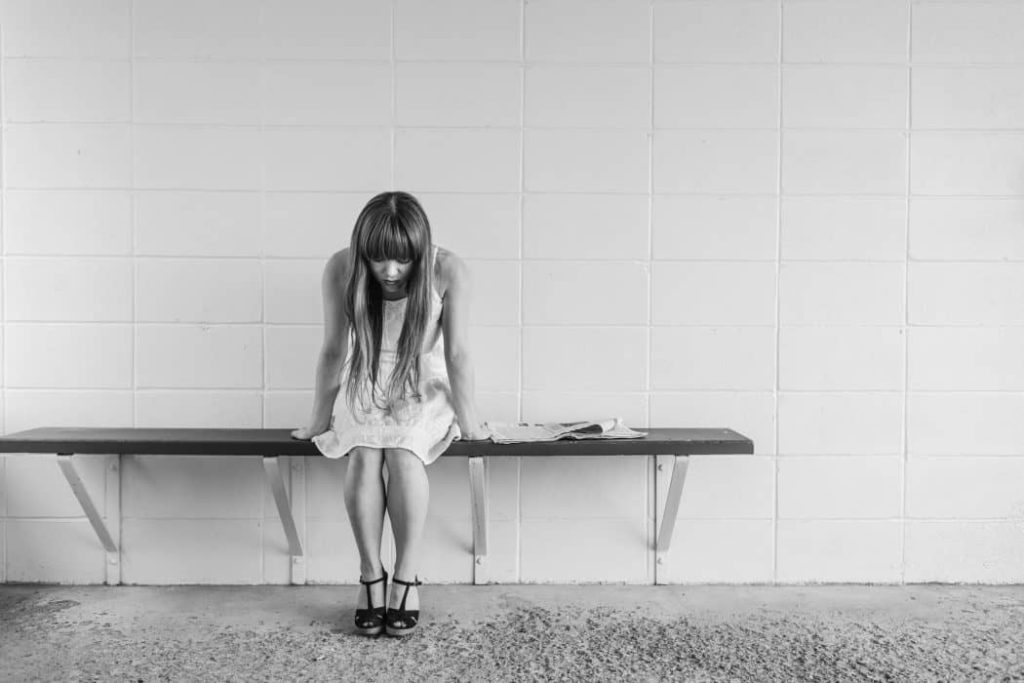Mental Health Awareness Month: Postpartum Depression

Disclaimer: We are in no way qualified as licensed to give advice on any mental health assessments. If you, or someone you love may be experiencing postpartum depression, call 1-800-PPD-MOMS or click here. This information is for educational purposes only and should not be taken as a substitute for medical advice. – Maternal Instincts
Postpartum Depression
Stats say that on average, one in seven women will experience postpartum depression. So, if you or someone you know is experienced prolonged feelings of sadness following delivery, it is very, very normal. And, when you seek help, you can cope with the feelings you’re going through safely. Ask for help if you these signs describe the situation. It might be postpartum depression.
Signs & Symptoms of Postpartum Depression
After birth, a mother’s body undergoes significant, extreme and rapid hormone changes. In the past, society has labeled the sadness that comes along with these changes as the “Baby Blues.” Now, though, universally, mental health professionals are acknowledging the profound effects of postpartum depression and even coming up with new ways to help mother’s cope. If these symptoms do not subside within one to two weeks, you should reach out for help. These symptoms are as described by the Centers for Disease Control and Prevention.
- Feeling down and depressed for several weeks or more
- Feeling distant and withdrawn from friends and family
- A loss of interest in activities, including sex
- Sleeping and eating changes (too much or not enough)
- Fatigue and tiredness throughout the day without change
- Short fuse with others
- Anxiety or panic attacks
- Not wanting to leave the house
How to Talk About Postpartum Depression With Your Partner
Did those ring a bell with what may be going on at home? Identifying what could be the issue is always a good first step. Next though is how to approach talking about postpartum depression with your partner, or acknowledging it yourself. If you think postpartum depression is affecting you, you’re thinking clearly enough to understand you need help. Ask your partner, a family member or friend. Ask your pediatrician or doctor for a referral. In most cases, they will be happy to help you with anything you need.
If you need to approach the subject with your partner, you’ll want to tread lightly. If they are feeling depressed, they are likely also feeling extra sensitive. So, even if you don’t mean it, something you say could hurt their feelings. It’s best to be very delicate and bring up specific situations. For example, “Anna, I saw you yesterday crying. I want to be here for you. Can I help a little bit more? Do you think you might want to get some more help with the baby or maybe talk to someone?” If they are resistant, keep trying. Let them open up to you. You can do this by helping with the little things, or bringing home some surprise flowers one day. The “small” things can make a big difference. Be there for them. Ask for professional help when you need it.
Ways to Cope With Postpartum Depression
Ideally, you should seek professional help immediately. A counselor will help walk the whole family through challenging feelings and figure out ways to reconnect with each other. Once you’ve secured a therapist specializing in postpartum depression, taking care of your physical health is crucial. Make sure to get enough sleep and eat enough fruits and veggies. Get outside! Sunshine has always been good for the body and soul.
Awareness of postpartum depression helps support moms going through the struggle. Just knowing that any fellow mom you see at the grocery story could be going through one of the hardest times in their life, means more understanding, love and kindness for each other. May is Mental Health Awareness Month and this month, we’re asking you from the bottom of our hears here at Maternal Instincts, to love one another and sprinkle kindness everywhere. Thanks for reading!

